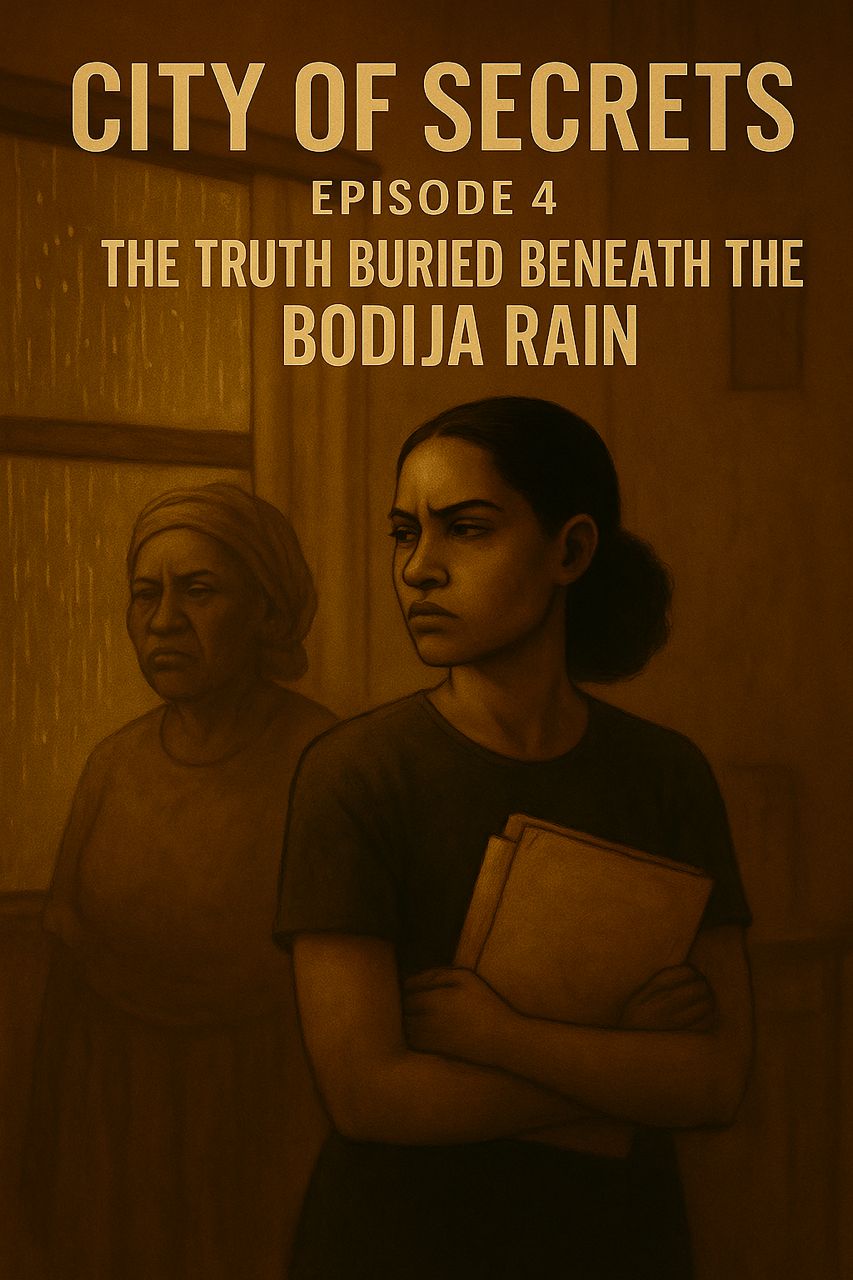
Mobola Johnson
Ibadan welcomed her with thunder.
As the bus curved into the ancient city under a leaden sky, Zainab felt as though the heavens themselves were holding their breath. The rain came down like a memory — heavy, urgent, washing away the sins of Lagos but not the fear.
The address Musa gave her was scribbled on a torn paper, already smudged from sweat and smears of blood — not his, but hers. She had injured herself while running, she didn’t look back after the gunshots, but the sound haunted her, echoing in the crevices of her mind like a drumbeat of guilt.
No. 2, Adebisi Close, Bodija.
She climbed a taxi and kept her head low.
The house stood like a relic — whitewashed walls now tinged with algae and grief. Bougainvillea vines strangled the fence, and the gate creaked like a voice that had kept secrets too long.
Zainab knocked once.
The woman who opened the door was not what she expected. Not young. Not old. Regal in a faded Ankara wrapper and a face lined with silence.
“You’re late,” she said, as if Zainab had kept the gods waiting.
“You knew I was coming?”
“I knew someone would.”
The woman’s name was Aunty Ebun. Former librarian. Former intelligence contact. Former everything. Now just a custodian of forgotten truths.
Inside, the room smelled of camphor, wood polish, and buried years. Books leaned against each other like conspirators. On the wall, a black-and-white photo of a younger Ebun, flanked by General Kolapo Sanni and Zainab’s father — smiling, unaware of the storm they were creating.
“I don’t understand,” Zainab whispered. “Why me?”
“Because you’re the last one they didn’t buy, break, or bury.”
Ebun reached under a floorboard and brought out a flat metal box. Inside: a military badge, a microchip, and a yellowed folder marked: PROJECT BABEL – FINAL DRAFT.
Zainab picked up the chip. “What’s on this?”
“The names of everyone involved. The funding sources. The cover-up. And… the experiment.”
Zainab’s voice trembled. “What experiment?”
Ebun turned to her slowly. “Mind control through media signals. Hidden messages embedded in national broadcasts. News, jingles, radio — especially during military rule. It worked… briefly. Until it didn’t. Some went mad. Others died. Your father was one of the scientists. He tried to shut it down. So they shut him up.”
Zainab’s eyes stung with the weight of truth. She felt like a hinge on the door of history — too small to carry it, too central to ignore it.
“So what do I do now?” she asked.
Ebun smiled sadly. “That’s your choice. Publish it, and you’ll expose everything. But you’ll never know peace again. Keep it buried, and nothing changes.”
Zainab stared out the window. Rain slapped the glass in angry bursts.
She saw her aunt’s face. Musa’s blood. Her father’s silence. The black SUV.
And then, she saw a future where stories like hers never got told — and knew she couldn’t live there.
She stood. “I’ll publish it.”
Ebun nodded.
“I’ll get you a secure connection,” she said. “But once it’s out… they will come for you.”
“I’ll be ready.”
Zainab left Bodija that night with nothing but a USB, a dead man’s secrets, and the weight of a nation’s hidden wounds.
As the first article went live, titled “Babel: The Secret Nigeria Buried,”
somewhere in Abuja, a red phone rang — and the hunt began.
THE END.
Is this really the end?
Mobola Johnson is a creative writer and experienced storyteller.
Read her blockbuster series every Tuesday and Saturday.
